water temperature
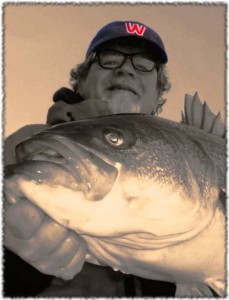 “I only write when I’m inspired,” wrote William Faulkner. I’d find that statement comforting if he hadn’t followed it with, “and I’m inspired every morning at 9:00 AM.” Lately, my every-morning-at-9:00 AM-ritual hasn’t included much writing. Oh, I’ve had plenty to write about, it’s just that I’ve overcommitted myself (again) so that every spare waking minute seems filled with obligation. When I have some spare time, I usually go fishing. Since I bet you’d much rather hear about the fishing than the excuses, I’ll dive right in.
“I only write when I’m inspired,” wrote William Faulkner. I’d find that statement comforting if he hadn’t followed it with, “and I’m inspired every morning at 9:00 AM.” Lately, my every-morning-at-9:00 AM-ritual hasn’t included much writing. Oh, I’ve had plenty to write about, it’s just that I’ve overcommitted myself (again) so that every spare waking minute seems filled with obligation. When I have some spare time, I usually go fishing. Since I bet you’d much rather hear about the fishing than the excuses, I’ll dive right in.
If the paragraph above sounds familiar, it’s because it’s a re-run from an article I posted here on ChesapeakeLightTackle.com in April two years ago. I guess what goes around always comes back, and once again I’m struggling to keep too many plates spinning in the air. I sometimes have to scale down, tune out, and just fish. If I haven’t returned an email or phone call recently, I apologize. The good news is that things are starting to settle down and I’ve found a few minutes for a fishing report and a word or two of advice.
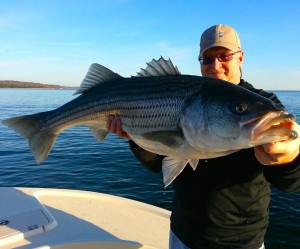 I bet you’re aware that the rockfish catch and kill season opens this Saturday in Maryland. While I enjoy seeing people get excited about fishing, I always dread the start of the kill season. Opening Day doesn’t mean much to fishermen who are in it for the simple joy of fishing. Most of us have been catching and releasing fish all winter. We fish because we love the sport, not because it puts meat on the table. I like to eat fish too, but you won’t see me keeping any big stripers this trophy season. Read More!
I bet you’re aware that the rockfish catch and kill season opens this Saturday in Maryland. While I enjoy seeing people get excited about fishing, I always dread the start of the kill season. Opening Day doesn’t mean much to fishermen who are in it for the simple joy of fishing. Most of us have been catching and releasing fish all winter. We fish because we love the sport, not because it puts meat on the table. I like to eat fish too, but you won’t see me keeping any big stripers this trophy season. Read More!
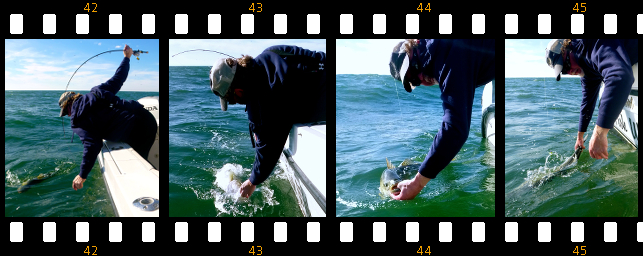 It’s winter: it’s cold, it’s wet, and it’s snowy. A lot of the ramps are iced in. It’s a great time of year to sit inside by the fire and read a book or watch a fishing video. I don’t know about you, but that keeps me entertained for about 15 minutes, then I gotta float a boat or something. Fortunately, winter is also a great time to catch and release striped bass. Rockfish are a lot more likely to survive when they’re released in cold weather. Science proves water and air temperatures greatly influence striped bass mortality. In a seminal catch & release study taken on the Susquehanna Flats in 1999, fisheries biologists Rudy Lukacovic and Ben Florence found that 98.4% of released rockfish live when they are turned loose in water temperatures of 57 to 59 degrees Fahrenheit. Stripers become more vulnerable as the weather warms and water temperatures rise, but their mortality percentage is still less than 4% in water temperatures of 62 degrees and less. Proper handling, good catch-and-release practices, and fishing in higher salinity waters can further improve catch-and-release mortality so that it’s possible to reduce the number of fish we kill to less than 1%. That makes winter a pretty awesome time to fish for those of us who are in it for the experience and not the meat. Read More!
It’s winter: it’s cold, it’s wet, and it’s snowy. A lot of the ramps are iced in. It’s a great time of year to sit inside by the fire and read a book or watch a fishing video. I don’t know about you, but that keeps me entertained for about 15 minutes, then I gotta float a boat or something. Fortunately, winter is also a great time to catch and release striped bass. Rockfish are a lot more likely to survive when they’re released in cold weather. Science proves water and air temperatures greatly influence striped bass mortality. In a seminal catch & release study taken on the Susquehanna Flats in 1999, fisheries biologists Rudy Lukacovic and Ben Florence found that 98.4% of released rockfish live when they are turned loose in water temperatures of 57 to 59 degrees Fahrenheit. Stripers become more vulnerable as the weather warms and water temperatures rise, but their mortality percentage is still less than 4% in water temperatures of 62 degrees and less. Proper handling, good catch-and-release practices, and fishing in higher salinity waters can further improve catch-and-release mortality so that it’s possible to reduce the number of fish we kill to less than 1%. That makes winter a pretty awesome time to fish for those of us who are in it for the experience and not the meat. Read More!
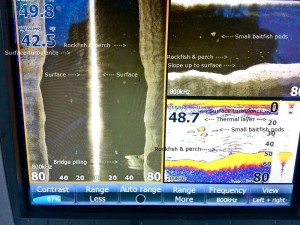 We interrupt this conservation blog with a fishing report. Nah, it’s the other way around. Chesapeake Light Tackle will always be first and foremost a fishing-report website. Well, fishing reports along with some occasional good advice about gear and techniques. Don’t worry – I won’t be lightening up on Maryland DNR’s bad decision to increase rockfish harvest by 14 percent in the face of impending cuts, but I wanted to let you know that I have been lighting up some local fishing spots lately. It’s the holidays, and the weather hasn’t been great, but there are still some fish to be caught for those who are willing to brave the elements and cast for them. The warm water discharges have been hit-and-miss lately. Most of the anglers who have visited them have been disappointed, but once in a while, I hear of a good fish or two being caught. The same goes for the deep holes at the mouths of the rivers and also for my go-to-winter honey hole: Light Tackle University (“LTU”). Read More!
We interrupt this conservation blog with a fishing report. Nah, it’s the other way around. Chesapeake Light Tackle will always be first and foremost a fishing-report website. Well, fishing reports along with some occasional good advice about gear and techniques. Don’t worry – I won’t be lightening up on Maryland DNR’s bad decision to increase rockfish harvest by 14 percent in the face of impending cuts, but I wanted to let you know that I have been lighting up some local fishing spots lately. It’s the holidays, and the weather hasn’t been great, but there are still some fish to be caught for those who are willing to brave the elements and cast for them. The warm water discharges have been hit-and-miss lately. Most of the anglers who have visited them have been disappointed, but once in a while, I hear of a good fish or two being caught. The same goes for the deep holes at the mouths of the rivers and also for my go-to-winter honey hole: Light Tackle University (“LTU”). Read More!
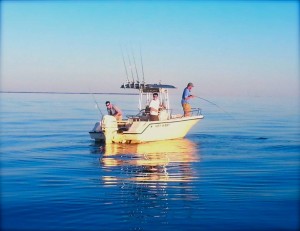 Hack [hak] (n) – A clever trick, skill, or shortcut to increase productivity and efficiency.
Hack [hak] (n) – A clever trick, skill, or shortcut to increase productivity and efficiency.
1. Find the bait first, then look nearby for the fish.
2. All things being equal, go with chartreuse.
3. Fish in areas where you can see the current moving.
4. The sneakier the angler, the bigger the fish.
5. Use dark colored lures in low light situations and rainy days.
6. Color contrasts attract fish. Read More!
![darthsidious[1]](http://www.chesapeakelighttackle.com/wp-content/uploads/2013/02/darthsidious1-300x248.jpg) Every angler I know has lost the biggest fish they ever hooked. Well, at least we think we have. A fish that breaks a line or pulls a hook immediately grows twenty pounds in my mind. It’s in every fisherman’s nature to believe he or she had a shot at a new world record, but it got away. Nothing makes a fish bigger than almost getting caught. I had just that experience a few days ago – you know, a big fish, an epic battle, and a broken line – so I thought it might be interesting to take another look at some of the things we do wrong to make sure we never catch that fish of a lifetime.
Every angler I know has lost the biggest fish they ever hooked. Well, at least we think we have. A fish that breaks a line or pulls a hook immediately grows twenty pounds in my mind. It’s in every fisherman’s nature to believe he or she had a shot at a new world record, but it got away. Nothing makes a fish bigger than almost getting caught. I had just that experience a few days ago – you know, a big fish, an epic battle, and a broken line – so I thought it might be interesting to take another look at some of the things we do wrong to make sure we never catch that fish of a lifetime.
It’s big fish season on the Chesapeake Bay. The coldest months of the year are the absolute best times to catch & release striped bass. Stripers are hardier in the winter. They’re more muscular, carry more fat, and are almost guaranteed to survive when properly handled and released. Additionally, winter is a great time to fish the Bay because it’s almost free of boat traffic. Wildlife sightings are more common. Bald eagles are frequent. Sea ducks are everywhere. On cold, clear, calm days colors are more vivid, the water reflects more spectacularly, and we can see things farther away. Some days you can see for miles across the glass where unobstructed views of the horizon make it nearly impossible to tell where the water ends and the blue sky begins. It’s a fantastic time to enjoy the Chesapeake in all it’s winter splendor. It’s beautiful. So, c’mon, you wouldn’t want to spoil all that serenity with the biggest fish of your lifetime, would you? Here are some sure-fire things you can do to make sure you lose that bad boy! Read More!
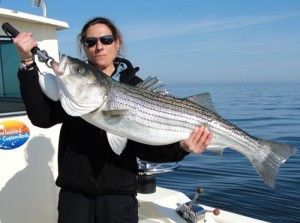 In the fifty years or so I’ve had to observe the behavior of fishermen, I’ve noticed a few trends. While collecting thoughts for my next book, I’m forming a list of traits that I think good fishermen have in common. In the book, I’ll concentrate primarily on gear and tackle but I also want to spend some time examining habits and attitudes that successful anglers share. You know, the right stuff. One penchant stands out above all the rest – good fishermen like to release fish. Not only do they like to let them go, but they look for ways to insure they survive once they swim away. Accomplished anglers find satisfaction in returning a fish to the water and they enjoy the thought that other fishermen will also have the opportunity to experience the thrill of a trophy catch.
In the fifty years or so I’ve had to observe the behavior of fishermen, I’ve noticed a few trends. While collecting thoughts for my next book, I’m forming a list of traits that I think good fishermen have in common. In the book, I’ll concentrate primarily on gear and tackle but I also want to spend some time examining habits and attitudes that successful anglers share. You know, the right stuff. One penchant stands out above all the rest – good fishermen like to release fish. Not only do they like to let them go, but they look for ways to insure they survive once they swim away. Accomplished anglers find satisfaction in returning a fish to the water and they enjoy the thought that other fishermen will also have the opportunity to experience the thrill of a trophy catch.
I love to eat fish. I just returned from a week-long fishing trip to the Abacos Islands where my sons and I ate the fish we caught every day. I don’t begrudge anyone the opportunity to eat their catch, but every angler has to release fish from time to time. Better anglers can’t possibly eat all the fish they catch, nor do they want to. I’ve written about this in the past, so instead of going into a step-by-step breakdown of best-practices, I thought I’d try to make it a little more fun by turning it into a quiz. Think you have a good handle on how to take care of the fish you plan to release? Check it out: Read More!


